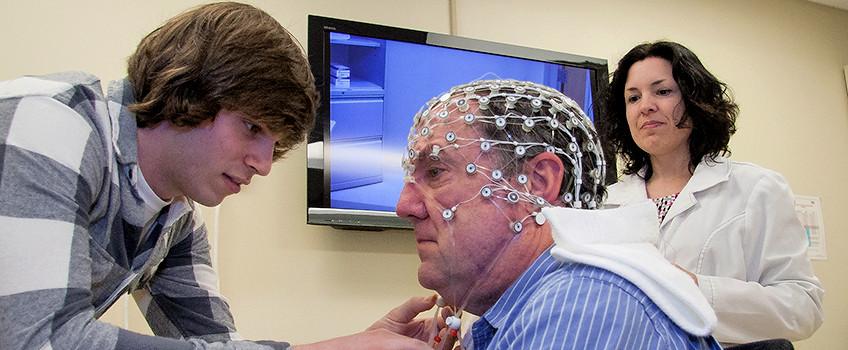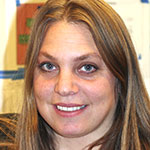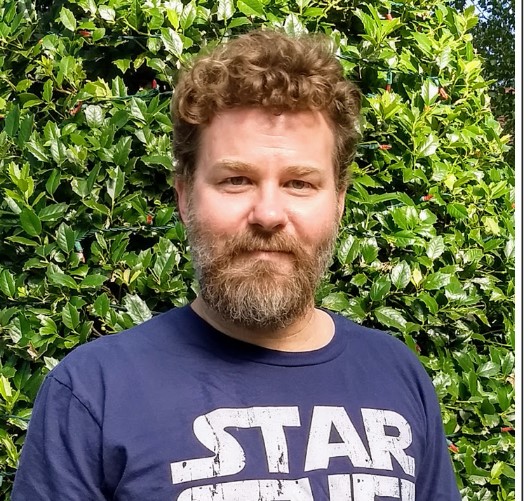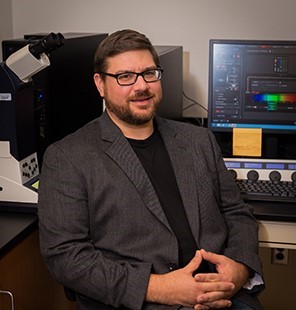Behavioral Neuroscience Minor

Neuroscience is the study of brain anatomy and physiology, as well as the relationship between the brain and overt behavior, cognitive processes, and emotional experiences, among others. Behavioral neuroscience is a subdiscipline within the general field and is directed toward understanding the neural components that support human behavior, both normal and abnormal.
Neuroscience generally focuses on the study of the nervous system, whereas behavioral neuroscience is concerned with how neural components result in behavior.
Program Overview
Behavioral Neuroscience minor provides an opportunity for the in-depth exploration of the field of behavioral neuroscience to better prepare students for future study and careers in the natural and social sciences. Although advanced knowledge of the structure and function of the brain would augment the coursework in many majors (e.g., speech pathology and audiology, nursing, criminal justice, and biology), it is not always possible to offer sufficient coursework within any of these majors to provide the level of training that a minor in behavioral neuroscience could provide. Thus, students with similar interests from various disciplines can collaborate on projects, broaden their perspectives, and increase their knowledge in this growing field, opening doors to careers that students would have otherwise not known about nor have been qualified to pursue.
Program Coordinator:

Elizabeth Shobe, Ph.D.
Professor of Psychology
609-626-6032
G216
elizabeth.shobe@stockton.edu
Program Requirements
Students will be required to complete 24 credit hours, divided into three levels of study: basic principles, advanced topics and electives. This flexibility reflects the dynamic nature of the behavioral neuroscience field.
Basic Principles:
The courses covering basic principles are intended to provide students with a foundation in cellular and systems components of the brain. Introductory courses in related fields (i.e., biology and psychology) are required to enhance students’ understanding of behavioral neuroscience concepts.
Advanced Topics:
The advanced topics requirement is intended to foster additional student-faculty research and to give students an opportunity to apply the basic principles through the analysis of existing research in behavioral neuroscience and the participation in research in this exciting area.Research and practicum experiences offered by other programs (e.g., CMDS, BIOL, CRIM) can be counted toward advanced topics provided the content has a neuroscience emphasis, contingent on receiving prior approval from the BHNS coordinator.
Electives:
Electives are the third area of study and allow students to make the minor specific to their goals and interests. Students can merge knowledge accumulated in their disciplines with knowledge from completed behavioral neuroscience courses.
Curriculum
Foundations
These Foundation credits do not count toward the credit total for the minor but must be completed for the minor to be awarded.
- PSYC 1100 Introduction to Psychology
- BIOL 1200/1205 Cells and Molecules/Cells and Molecules Lab
These courses serve as prerequisites for many of the courses below.
![]()
Curriculum Worksheet
Required Coursework (24 credits)
- BIOL/PSYC 2525 Foundations of Neuroscience (4 credits)
- Advanced Topics (8 credits)
Choose two from the following
BIOL/PHYS 3030 Biomedical Physics
BIOL 3360 Neurobiology
BIOL 4240 Developmental Neurobiology
CSCI 3800/4800 Special Project in Computer**
PSYC 3300 Neurons & Networks
PSYC 3355 Clinical Neuropsychology
PSYC 3535 Stem Educ.: Neuroscience
PSYC 3632 Metacognition
PSYC 3634 Seminar in Neuroscience
PSYC 3636 Human Memory
PSYC 3648 The Criminal Brain
PSYC 3708 Research on Creativity
PSYC 3718 Research in Neuroscience
PSYC 3900 Field Placement in Psychology**
PSYC 4805 Spec. Proj. in Cognitive Neuroscience
PSYC 4815/4825 Psych Project for Distinction**
PSYC 4895 Neuroscience: Summer Research Experience**
-
Electives * (8 credits)
Choose two:
BIOL 2150 Principles of Physiology
BIOL 3030 Biomedical Physics
BIOL 3110 Animal Behavior
BIOL 3360 Neurobiology
BIOL 4220 Endocrinology
BIOL 4240 Developmental Neurobiology
CSCI 3800 OR 4800 CSCI Special Project
CSCI 4463 Artificial Intelligence
CSCI 4464 Computer Vision
CSCI 4510 Topics in Computer Science*
GIS 3319 Addictions
GIS 3633 States of Consciousness
GIS 4614 Human Behavioral Genetics
GIS 4644 Mindfulness, Self and Reality
GIS 4664 Perspectives on Memory in Film
GNM 2209 Intelligent Machines/Humans
GNM 2216 Medical Technology
GNM 2248 Artificial Intelligence in Society
GNM 3105 Psychopharmacology
GSS 2351 Herbal Psychopharmacology
GSS 3114 The Dynamic Brain
HLTH 1103 Anatomy & Physiology Speech
HLTH 1241 Medical Terminology for Health
HLTH 2106 Speech & Hearing Science
HLTH 2119 Intro to Communication Disorders
HLTH 3122 Introduction to Audiology
PHYS 3030 Biomedical Physics
PSYC 2215 Cognitive Psychology
PSYC 2350 Comparative Psychology
PSYC 3331 Physiological Psychology
PSYC 3332 Perception
PSYC 3635 Positive Psychology
PSYC 3652 Buddhist Psychology
-
One additional Advanced Topics Course or Elective (4 credits)
*Additional Advanced Topics courses may be used as electives.
**Must have a neuroscience emphasis and prior approval from the minor coordinator.
Behavioral Neuroscience Minor Faculty

Mark Berg

John Bulevich

Vincent Cicirello

Joshua Duntley

Jessica Fleck

Christine Gayda-Chelder

Tim A. Haresign

Nathaniel Hartman

Rodger L. Jackson

Fang Liu

Jennifer Lyke

Elizabeth Shobe

Marcello Spinella

John White

Melissa Zwick
Admission to the Minor
The Behavioral Neuroscience Minor is open to students of all majors. Interested students should inform their preceptor of their interest and be sure to complete the Declaration of Major/Minor Form, available through Academic Advising to officially declare the minor. The declaration form must be signed by the minor coordinator.
Because of the varied nature of the coursework, many of the courses in the curriculum can be applied toward either cognate or at-some-distance requirements, depending on the student’s academic major and specific course selections within the minor. Much of the minor’s coursework would be considered as cognates for students with majors in Natural Sciences and Mathematics or Social and Behavioral Sciences, whereas most courses would be considered at-some-distance for majors in Arts and Humanities, Business, and Health Sciences.
Many of the elective courses in the minor are general studies courses that can be used to meet these requirements. Students should consult with their preceptor and the minor coordinator to determine exactly how courses in the minor will be applied. The decision about where minor courses fit in a student’s academic plan is usually made by the student’s preceptor on behalf of the program in which the student majors.
Planning early, particularly in programs with highly structured requirements, can help students complete the minor without taking additional coursework beyond the 128 credits required for graduation.
Career Opportunities
Completing a minor in Behavioral Neuroscience would increase one’s success in applying to graduate programs such as:
- Medicine,
- Neuroscience programs
- Biology
- Clinical neuropsychology
- Forensic psychology,
- Criminal justice
- Law
- Physical and occupational therapy
Specialized training in the study of the brain would also be an asset for students entering into or completing professional programs, such as nursing and speech audiology and pathology, in which an advanced understanding of the brain’s structure and function would assist students in applying interventions aimed at rehabilitation.
In addition, training in neuroscience will help prepare students to work in applied laboratory settings that utilize neuroscience techniques and related approaches. Because neuroscience has become an integral component of many fields, the minor will serve as a complement to many undergraduate programs that prepare students to enter directly into service and applied professions, such as education, social work, and law enforcement.
Please visit Stockton's Career & Development website for career coaching and resources.


